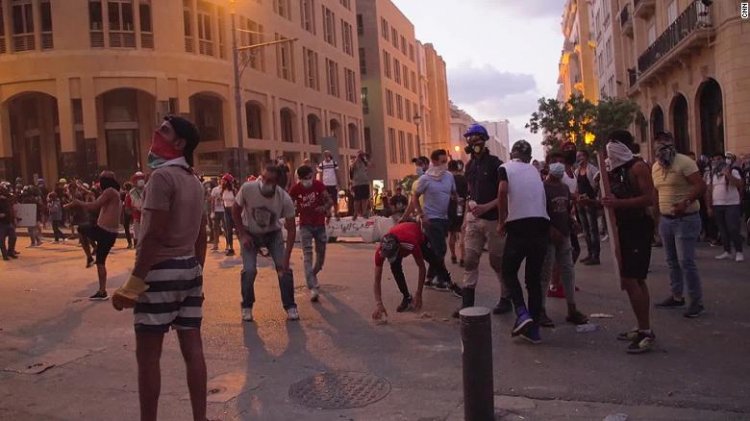The Beirut Government Resigns Over Beirut Blast Outrage

Beirut: Lebanon’s prime minister announced his government’s resignation on Monday (Aug 10) night, saying a huge explosion that devastated the capital and stirred public outrage was the result of endemic corruption.
The Aug 4 detonation at a port warehouse of more than 2,000 tonnes of ammonium nitrate killed at least 163 people, injured more than 6,000 and destroyed swathes of the Mediterranean capital, compounding months of political and economic meltdown.
In a televised address, Prime Minister Hassan Diab said he backed calls by ordinary Lebanese for those responsible for “this crime” to be put on trial.
Mr Diab made the announcement after the cabinet, formed in January with the backing of the powerful Iranian-backed Hezbollah group and its allies, met on Monday, with many ministers wanting to resign, according to ministerial and political sources.
Mr Diab said on Saturday he would request early parliamentary elections.
For many ordinary Lebanese, the explosion was the last straw in a protracted crisis over the collapse of the economy, endemic corruption, waste and dysfunctional governance, and they have taken to the streets demanding root-and-branch change.
The information and environment ministers quit on Sunday as well as several lawmakers, and the justice minister followed them out the door on Monday.
Finance Minister Ghazi Wazni, a key negotiator with the IMF over a rescue plan to help Lebanon exit a financial crisis, prepared his resignation letter and brought it with him to the cabinet meeting, a source close to him and local media said.
“The entire regime needs to change. It will make no difference if there is a new government,” Joe Haddad, an engineer, told Reuters. “We need quick elections.”
Lebanon’s president had previously said explosive material was stored unsafely for years at the port. He later said the investigation would consider whether the cause was external interference as well as negligence or an accident.
Beirut’s governor said many foreign workers and truck drivers remained missing and were assumed to be among the casualties, complicating efforts to identify the victims.
Anti-government protests in the last two days have been the biggest since October when demonstrators took to the streets over an economic crisis rooted in endemic corruption, waste and mismanagement. Protesters accused the political elite of exploiting state resources for their own benefit.
Eli Abi Hanna’s house and his car repair shop were destroyed in the blast.
“The economy was already a disaster and now I have no way of making money again,” he said. “It was easier to make money during the civil war. The politicians and the economic disaster have ruined everything.”
Some Lebanese doubt change is possible in a country where sectarian politicians have dominated since the 1975-90 conflict.















































